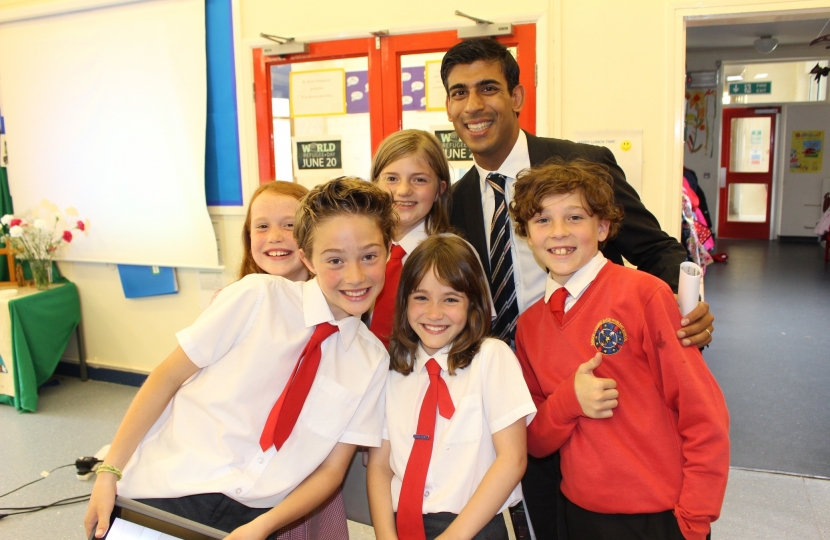
WORKING as your constituency MP, I have spent more time in our local schools than anywhere else.
That’s because I believe a good education is the most precious thing we can give our children.
As someone whose grandparents grew up in villages in India without many modern conveniences, I am acutely aware of the transformative power of a good education and the opportunities it can open up.
I am sure my grandparents never imagined that their grandson would one day be a UK Government minister - something which would not have been possible without a first-rate education.
I am pleased to say we have some wonderful schools in North Yorkshire. They consistently perform well above average in the league tables and that is thanks to the wonderful work of teachers, support staff, heads, governors and, of course, parents who encourage their children to do the best they can.
Government can also claim some credit too. Just before Christmas an international study of nine-year-olds’ reading ability in 50 countries showed a dramatic improvement in the number of children in England who are learning to read.
Our performance was better than France, Germany and the United States and has been consistently improving since the introduction of phonics as a structured method of learning to read in schools in the early years of the Coalition Government.
Phonics uses individual sounds and blends them together to make words and as the report published before Christmas reveals, it has resulted in significant improvements in the reading performance of boys and those pupils who are struggling with their reading.
My colleague, the Schools Standards Minister Nick Gibb, is justifiably delighted with these results for they are heartening vindication of a policy he very much spearheaded when he was first appointed School Minister in 2010 - and has stuck with despite facing a great deal of opposition.
It is policies like these, when given time to work, which produce results we can all take satisfaction from and contribute to the reasons why almost two million more schoolchildren are being taught in schools rated good or outstanding by Ofsted than in 2010.
Of course, we cannot afford to rest on our laurels. We still have much to do to further drive up standards. Too many children in their early years at school struggle with language and literacy, making it harder for them to master the fundamentals of reading that many children take for granted. Research has shown that five-year-olds who struggle with language are six times less likely to reach the expected standard in English at age 11 than those with good language skills.
The new Centre of Excellence for Literacy Teaching announced by the Government this week will set up a national network of 35 English Hubs across the country – backed by £26 million - to work with schools in challenging circumstances and help raise standards further.
The centre will promote and share effective practice with a particular focus on language and literacy teaching in reception – using the proven method of phonics.
It will be exciting to see these policies vindicate the Government's efforts to raise standards and boost social mobility.
